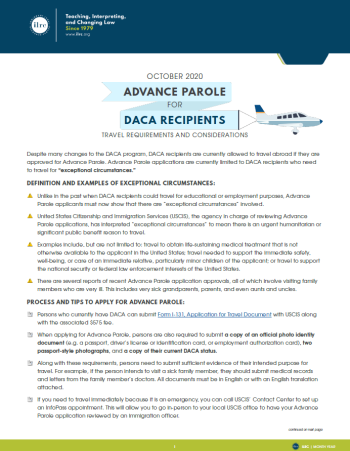
Despite many changes to the DACA program, DACA recipients are currently allowed to travel abroad if they are approved for Advance Parole. This resource provides an overview of the requirements, tips, and considerations for traveling abroad under Advance Parole as a DACA recipient.
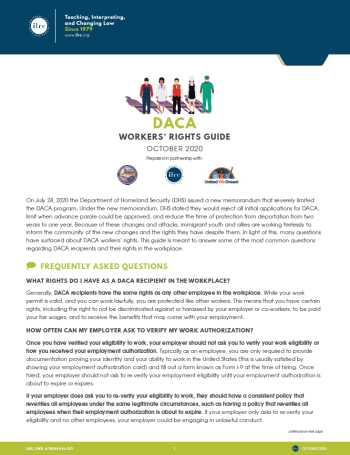
On July 28, 2020 the Department of Homeland Security (DHS) issued a new memorandum that severely limited the DACA program. This announcement has left immigrant youth and allies working tirelessly to inform the community of the new changes and the rights DACA recipients have. This DACA workers' guide, prepared in partnership United We Dream and Texas AFL-CIO, is meant to answer some of the most common questions regarding DACA recipients and their rights in the workplace.
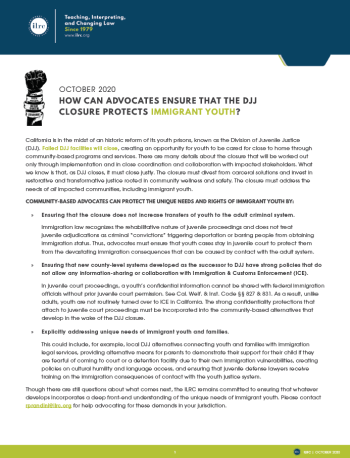
California is in the midst of an historic reform of its youth prisons, known as the Division of Juvenile Justice (DJJ). Failed DJJ facilities will close, creating an opportunity for youth to be cared for close to home through community-based programs and services. This short resource describes steps that community-based advocates must take to ensure that the closure addresses the needs of ALL impacted communities, including immigrant youth.
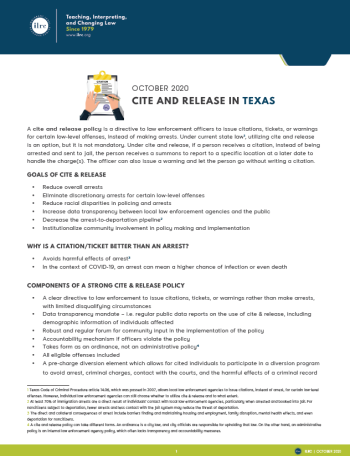
A cite and release policy is a directive to law enforcement officers to issue citations, tickets, or warnings for certain low-level offenses, instead of making arrests. This resource provides a general overview of cite and release policies, including the goals and benefits of cite and release, the components of a strong policy, the eligible offenses under Texas state law, and examples of local policies across Texas.
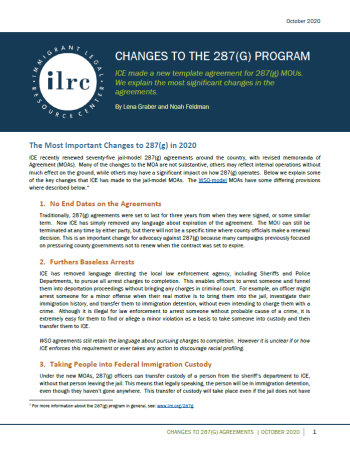
ICE has changed the standard language for 287(g) agreements. This resource highlights and explains the most significant changes and provides a line by line comparison of old and new contracts.
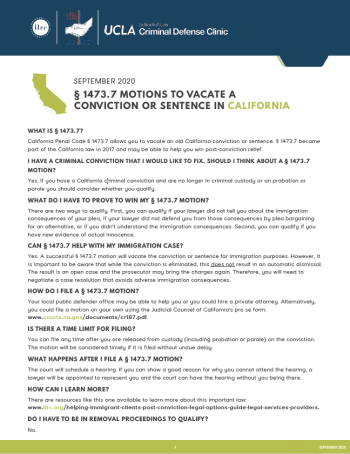
This one-pager, a partnership between the UCLA Criminal Defense Clinic, Al Otro Lado, and the ILRC, describes the how and why of CA Penal Code s. 1473.7.
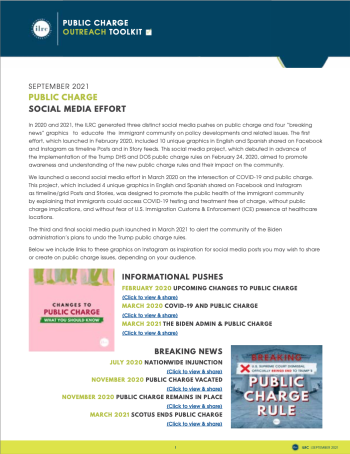
In 2020 and 2021, the ILRC generated three distinct social media pushes on public charge and four “breaking news” graphics to educate the immigrant community on policy developments and related issues. In this resource, we share information on those pushes and links to the graphics on Instagram as inspiration for social media posts other organizations or advocates may wish to share or create, depending on their audience.

This community resource is a condensed explainer for anyone with questions about DACA, with a brief overview on who can apply, who can renew, and what the recent USCIS changes to the program mean.
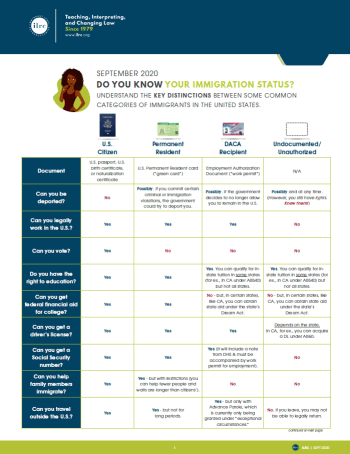
For many immigrants, learning what their status is does not come into full scope until they apply for driver’s licenses, financial aid, travel documents, or other benefits that are a part of adulthood’s accompanying responsibilities. Regardless of one’s age, however, it is important that everyone understand the differences between the distinct categories recognized by the federal government so as to be well informed and exercise caution throughout daily life.
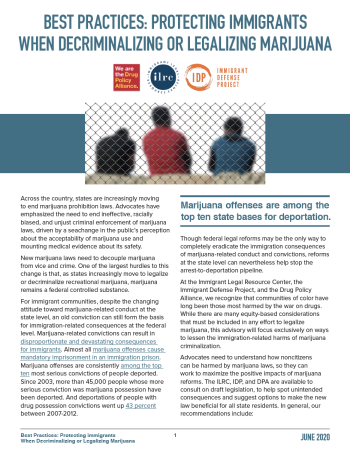
Across the country, states and localities are increasingly moving to end marijuana prohibition laws. For immigrant communities, despite the changing attitude toward marijuana-related conduct at the state level, an old conviction can still form the basis for immigration-related consequences at the federal level. Though federal legal reforms may be the only way to completely eradicate the immigration consequences of marijuana-related conduct and convictions, reforms at the state level can nevertheless help stop the arrest-to-deportation pipeline. Drawing from our experience with state and municipal efforts across the country, this resource, jointly produced by the Immigrant Legal Resource Center, the Immigrant Defense Project, and the Drug Policy Alliance, lists best practices for municipalities and states looking to decriminalize in a way that lessens the immigration-related harms of marijuana criminalization.